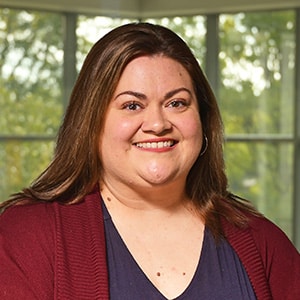If your partner takes care of all the finances, it’s time to get involved. If you provide care for a loved one but have no idea about their finances, it’s time to get involved.
Talking about finances is hard, but what’s even harder is being a caregiver who doesn’t know the full picture of your loved one’s financial situation.
I often hear from caregivers – mostly women – who share with me that their spouse always took care of the bills, balanced the checkbook and managed investment accounts. This arrangement was great when they both were healthy, my clients will say. However, when the partner no longer can take care of the finances, it’s easy to get overwhelmed and frustrated if you have not been involved. The same is true if you need to take over the finances of a parent or other loved one.
Whether you are a caregiver now or could be a caregiver in the future, here are my tips to help you get started.
Step one: Get a lay of the land
The best way to work toward financial security – whatever stage of life you’re in – is to gather information and become informed. Sometimes that involves confronting the reality of the situation rather than avoiding it.
- Understand what debts you and/or your loved one have.
- Know the bank accounts and balances.
- Understand the investment accounts and balances.
- Is there a pension or annuity income?
- Do you or your loved one have life insurance or long-term care insurance?
- Make a list of the bills to be paid each month.
- Keep a list of all the passcodes associated with the accounts in a safe and secure place.
- Most importantly, if you become overwhelmed by the process, ask yourself “What is the next best step in this situation?” Work on that next best step, one task at a time.
If you aren’t sure of all of the accounts or credit cards, you can request a free credit report through any of the three credit bureaus Equifax, Experian or TransUnion, which will list account information and debtors.
Step two: Seek professional help
Elder law attorneys are worth their weight in gold. Some people believe they need a lot of assets to talk to an attorney, and this is not true. An elder law attorney can help with Medicaid planning; can assist with legal guardianship; can set up wills or trusts; and can help you plan for long-term care and end-of-life plans.
If you don’t know an elder law attorney, you can find one through the National Academy of Elder Law Attorneys and search by zip code. The Alzheimer’s Association also has resources for financial and legal planning for caregivers of people with dementia of all varieties.
Step three: Empower those you trust
Not long ago, my aunt had a stroke and passed away. We were devastated. We also were at a loss of how to take care of her estate. She had information on her computer, but no one had access to her passwords or accounts. It’s taken months for our family to get this sorted out. This was a life lesson for my parents and for me. It would have been easier if my aunt had kept passwords in a notebook or let us know that her information was in a safety deposit box – or was even kept by an attorney, friend, family member or faith leader.
You don’t need to tell everyone your business, but a caregiver, loved one or trusted advisor may need this information in case something happens. As a caregiver, it is important to explain to your loved one that you aren’t trying to pry into their lives, but you need the information to do the best job you can to protect and care for them and ensure they have the best quality of life.
CICOA Aging & In-Home Solutions is a nonprofit committed to serving the needs of older adults, people with disabilities and family caregivers. We are working to build a healthier, flourishing community for all, with the help of our supporters. This blog is part of an eight-part series highlighting the challenges of aging and stepping into the role of caregiver for family members and loved ones as they age.
8 Challenges of Aging Series:
REACH OUT FOR HELP
We can guide you in your caregiving journey

Caryn Flowers, MA, BSN, RN
Caryn Flowers (she/hers) is a caregiver options counselor at CICOA. A seminary-educated Registered Nurse and social worker with a passion for singing, dancing, interfaith dialogue, and adventure, Caryn started at CICOA through an internship with the Strategy and Innovation team while completing her master’s of Peace and Social Transformation at Earlham School of Religion. She fell in love with CICOA’s dedication to innovation and diversity and decided her next professional adventure was going to include reimagining CICOA’s Caregiver Support program, as she is a former family caregiver herself. She serves as the Chair of the Governance Committee for the Board of Directors of the Center for Interfaith Cooperation in Indianapolis and is always studying something new.
The post 8 Challenges of Aging: Financial Security Starts With Getting a Lay of the Land first appeared on CICOA Aging & In-Home Solutions.
